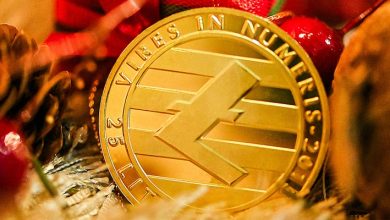What is a DAO? A Guide to Decentralized Autonomous Organizations

- Understanding the concept of DAOs
- The evolution of decentralized autonomous organizations
- Key features of DAOs and how they work
- Benefits and challenges of implementing a DAO
- Examples of successful DAOs in the blockchain space
- The future outlook for DAOs and their impact on traditional organizations
Understanding the concept of DAOs
Decentralized Autonomous Organizations, commonly referred to as DAOs, are a revolutionary concept in the world of blockchain technology. DAOs operate through smart contracts, which are self-executing contracts with the terms of the agreement directly written into code. This eliminates the need for intermediaries and allows for transparent and secure transactions.
DAOs are designed to be autonomous, meaning they can operate without the need for human intervention. This is achieved through the use of decentralized decision-making processes, where members of the organization can vote on various proposals using blockchain technology. These decisions are then executed automatically once a consensus is reached.
One of the key benefits of DAOs is their ability to provide a new model for organizing and governing communities. By utilizing blockchain technology, DAOs can offer a level of transparency and accountability that is unparalleled in traditional organizations. This can help to reduce corruption and increase trust among members.
However, it is essential to understand that DAOs are not without their challenges. One of the main concerns is the lack of legal recognition and regulatory oversight, which can make it difficult to resolve disputes or enforce decisions. Additionally, the code governing DAOs is not infallible and can be vulnerable to bugs or attacks.
Overall, DAOs represent an exciting new frontier in decentralized governance and have the potential to revolutionize the way organizations are structured and operated. By harnessing the power of blockchain technology, DAOs offer a glimpse into a future where trust and transparency are paramount.
The evolution of decentralized autonomous organizations
Decentralized autonomous organizations (DAOs) have come a long way since their inception. Originally introduced as a concept to enable trustless, transparent, and efficient decision-making processes, DAOs have evolved significantly over time.
The evolution of DAOs can be traced back to the introduction of blockchain technology, which provided the foundation for decentralized governance structures. As blockchain technology matured, DAOs began to gain traction as a viable alternative to traditional centralized organizations.
One of the key milestones in the evolution of DAOs was the creation of the first DAO in 2016, known as “The DAO.” This groundbreaking project aimed to create a decentralized venture capital fund that would allow investors to vote on investment decisions autonomously. While The DAO ultimately faced challenges and was exploited due to a vulnerability in its code, it paved the way for future DAO projects.
Since the rise and fall of The DAO, numerous projects have emerged in the blockchain space, each with its unique approach to decentralized governance. These projects have experimented with different governance models, incentive structures, and decision-making mechanisms, contributing to the ongoing evolution of DAOs.
Key features of DAOs and how they work
One of the key features of decentralized autonomous organizations (DAOs) is their ability to operate without centralized control. DAOs use smart contracts on blockchain networks to automate decision-making processes, eliminating the need for intermediaries. These organizations are governed by rules encoded in the smart contracts, which execute actions based on predetermined conditions.
DAOs work by allowing members to vote on proposals using tokens or coins held in their digital wallets. Each member’s voting power is typically proportional to the number of tokens they hold. Once a proposal is submitted, members can vote on whether to approve or reject it. If the proposal receives enough votes to pass, the smart contract automatically executes the actions outlined in the proposal.
Another important aspect of DAOs is their transparency and immutability. All transactions and decisions made within the organization are recorded on the blockchain, making them publicly accessible and verifiable. This transparency helps to build trust among members and ensures accountability within the organization.
Additionally, DAOs often have mechanisms in place to incentivize participation and reward members for their contributions. This can include issuing tokens as rewards for completing tasks or providing funding for projects that benefit the organization. By aligning incentives, DAOs can encourage active participation and collaboration among members.
Overall, DAOs represent a new way of organizing and governing communities, businesses, and projects in a decentralized manner. By leveraging blockchain technology and smart contracts, these organizations offer a transparent, efficient, and democratic approach to decision-making and coordination.
Benefits and challenges of implementing a DAO
Implementing a Decentralized Autonomous Organization (DAO) comes with a range of benefits and challenges that organizations need to consider before diving in. Let’s explore some of the advantages and obstacles that come with setting up a DAO.
- Benefits:
- 1. Transparency: DAOs offer a high level of transparency as all transactions and decisions are recorded on the blockchain, making it easy for participants to track and verify.
- 2. Autonomy: DAOs operate without the need for centralized control, allowing for more democratic decision-making processes among participants.
- 3. Reduced Costs: By eliminating intermediaries and automating processes through smart contracts, DAOs can help reduce operational costs.
- 4. Global Participation: DAOs enable individuals from around the world to participate in organizational decision-making without barriers.
While the benefits of implementing a DAO are clear, there are also challenges that organizations may face:
- Challenges:
- 1. Security Risks: DAOs are vulnerable to cyber attacks and hacking due to their digital nature, requiring robust security measures to be put in place.
- 2. Legal Uncertainty: The legal status of DAOs is still evolving, with regulations varying across jurisdictions, posing challenges for compliance.
- 3. Governance Issues: Without clear governance structures in place, DAOs may struggle with decision-making processes and conflict resolution.
- 4. Scalability: As DAOs grow in size and complexity, scalability issues may arise, requiring innovative solutions to ensure smooth operations.
It is important for organizations to carefully weigh the benefits and challenges of implementing a DAO to determine if it aligns with their goals and capabilities. By addressing these factors proactively, organizations can harness the power of DAOs while mitigating potential risks.
Examples of successful DAOs in the blockchain space
Some examples of successful decentralized autonomous organizations (DAOs) in the blockchain space include:
1. **The DAO**: One of the earliest and most well-known DAOs, The DAO was a venture capital fund that raised over $150 million in Ether in 2016. Despite facing a major security breach that led to the loss of a significant amount of funds, The DAO demonstrated the potential for decentralized decision-making and governance in the blockchain world.
2. **MakerDAO**: MakerDAO is a decentralized finance (DeFi) platform that issues the stablecoin DAI. It operates on the Ethereum blockchain and allows users to borrow DAI by locking up collateral in the form of Ethereum. MakerDAO’s governance token, MKR, enables holders to participate in decision-making processes within the platform.
3. **Aragon**: Aragon is a platform that enables the creation and management of decentralized organizations on the Ethereum blockchain. It provides tools for voting, fundraising, and governance, allowing users to establish their own DAOs with customizable rules and structures.
4. **MolochDAO**: MolochDAO is a grant-giving DAO focused on funding Ethereum infrastructure projects. Members of the DAO, known as “summoners,” can propose grants for community approval. MolochDAO has been successful in supporting various initiatives that contribute to the growth and development of the Ethereum ecosystem.
These examples showcase the diverse applications of DAOs in the blockchain space, from investment funds to decentralized governance platforms. As the technology continues to evolve, we can expect to see even more innovative and impactful DAOs emerge in the future.
The future outlook for DAOs and their impact on traditional organizations
As we look to the future, DAOs are poised to revolutionize the way organizations operate. Their decentralized nature allows for greater transparency, efficiency, and trust among members. Traditional organizations may need to adapt to this new model in order to stay competitive in the ever-evolving business landscape.
One of the key impacts of DAOs on traditional organizations is the shift towards more democratic decision-making processes. By removing centralized authority figures, DAOs empower all members to have a voice in how the organization is run. This can lead to more innovative ideas and a greater sense of ownership among participants.
Additionally, DAOs have the potential to streamline operations and reduce costs for traditional organizations. By automating certain processes through smart contracts, DAOs can eliminate the need for middlemen and reduce the risk of human error. This can lead to increased efficiency and profitability for organizations that embrace this new model.
Overall, the future outlook for DAOs is bright, with the potential to disrupt traditional organizational structures in a positive way. As more organizations begin to explore the benefits of decentralization, we can expect to see a shift towards more transparent, efficient, and democratic ways of doing business. It will be interesting to see how traditional organizations adapt to this new paradigm and whether they can keep up with the changing tides of the business world.



